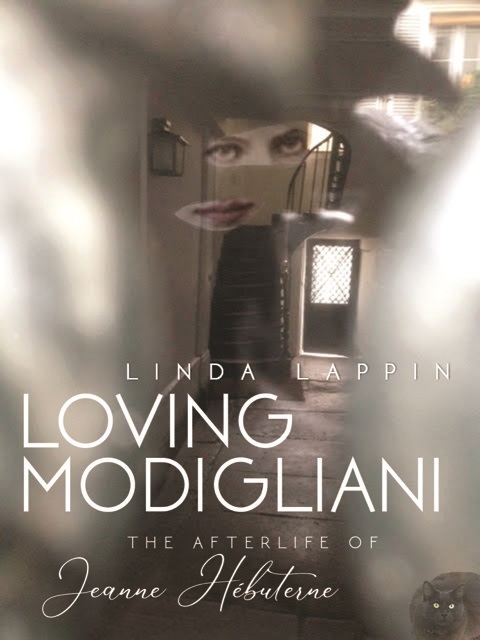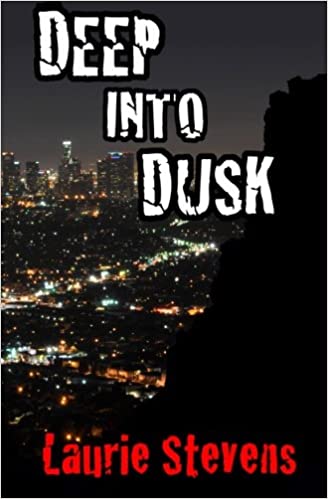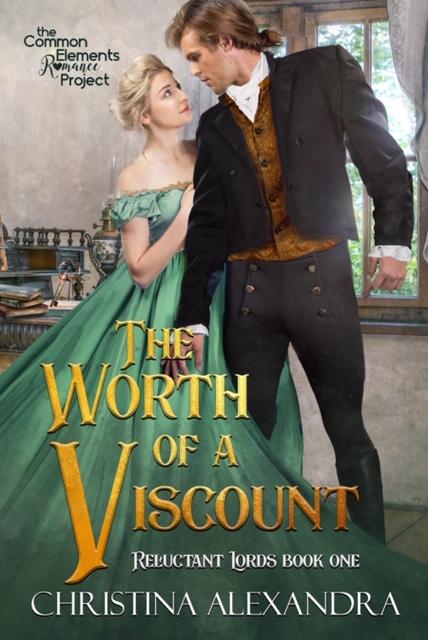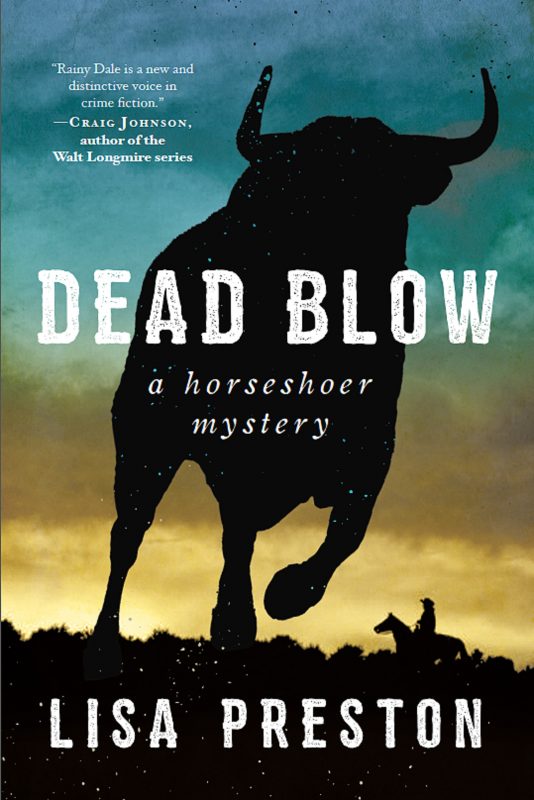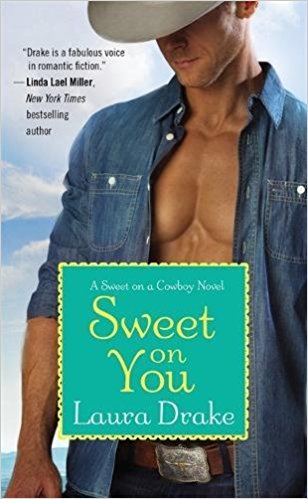Love & Mud Puddles
March 9, 2022 by Tari Jewett in category Writing tagged as holiday story, romantic comedy, romcom, The Wild Rose PressFrom the moment that Paul and I met, thirty-four years ago, our life has been a constant stream of planned and unplanned chaos, and the last year has been no exception. Since this time last year, we’ve had the joy of welcoming our beautiful grandson, Milo, I’ve had two total knee replacement surgeries, we’ve been making a slow move to our retirement home in Arizona, which will be complete in November, and preparing our current home to go on the market, a number of extended family situations that have been heartbreaking, and as you all know there’s been a pandemic.
With all that’s happened, good and challenging, I spent very little time at my desk working, but I did manage to write one book this year, a holiday romcom titled Love & Mud Puddles. I’m excited to announce that I signed a contract with The Wild Rose Press, and Love & Mud Puddles will be released for the holidays this year.

I had so much fun writing this Christmas cookie themed story about Hannah, a young woman who can’t bake, and is challenged to bring homemade Christmas cookies to her family Christmas Eve party. She and her best friend are on a mission to learn to make a fabulous holiday treat, and after several disastrous tries, they end up in a cookie baking class with an oh-so-cute instructor. Will Hannah learn to bake a fabulous cookie…or will they all go up in smoke? And why does the cute instructor always catch her in another disaster?
Mud Puddles are my name for my favorite double Chocolate Thumb Print cookies, and later this year I’ll share my recipe, and some of the other recipes that Hannah tries on her quest for the perfect holiday cookie. Actually, if you want it now, you can find it in my facebook group, Tari Lynn & Friends.
I’m pretty sure that for the rest of our marriage, Paul and I will continue with planned (and sometimes organized) and unplanned chaos, good, challenging and everything in between. In the meantime, I’m starting a new project, and I’m hoping to spend a little more time at my desk in 2022.
0 0 Read moreMarch Check-In
March 5, 2022 by Tracy Reed in category Writing
Happy March. I’ll keep this brief because I know everyone is focused on the turmoil that’s going on in the world right now. As a writer you are probably feeling a little guilty about writing romance. But we must remember, it’s our job to make people smile. I challenge you to write something that will make people smile and forget the crazy in the world and give readers an escape.
I’m coming off release month for The Good Girl Part Four. It didn’t pan out like I planned, but I’m pleased with the results. I didn’t meet my sales goal, but I exceeded my monthly sales goal by 3.7%. I missed out on money because this book and the next book in the series weren’t part of the price increase. I set these preorders up a while back and I didn’t feel good about raising the price when there were people who purchased at the lower price. This decision cost me money, but I know I’ll get the lost money back.
The Good Girl Part One and Girlfriends & Secrets were gifted some free advertising which pushed sales and preorders. I also did an author newsletter promo which generated sales and preorders. These ads put eyes on both series. I also ran a BookBub New Release For Less Ad. I hoped high for the day the ad ran, but fell a little short that day. But the ad had tails. Honestly, I think the tails are still growing. I love this BookBub new release tool and hope to use it with every release.
However, I over-estimated my writing schedule for my next release, the Good Girl Part Five. I thought I’d be finished with it by now, but I’m not. I’m pushing to complete the rough draft by March 19th. I’m hoping to end the series with book five, but it feels like there might be one more book. It also feels like the series might spin off.
As of this post, I’ve made some progress, but not as much as I would have liked for the month. I also added a couple of goals: release 3 books and increase BookBub US followers.
Here’s my updated goals list:
Get my letters
Triple my income
Triple my mailing list
Master Facebook ads – I made a change last month to how much I spend and it’s paying off. Last month, I scaled back to one ad and it’s paid off. This one ad for a first in series free has led to sales of the books in two of my other series. I’m going to ride this strategy for a little while before scaling up.
Update covers – 13 covers in total to update. 8 completed.
Learn how to write a sellable blurb
Use Ingram Spark
Direct distribution
Increase BookBub US Followers to 1000 – 1000 US are needed to qualify for a new release promotion alert
Increase my prices
Release 3 Books – One down, two to go.
How are you doing with your goals so far?
See you next month.
Tracy
Some Books by Tracy Reed

A California native, novelist Tracy Reed pushes the boundaries of her Christian foundation with her sometimes racy and often fiery tales.
After years of living in the Big Apple, this self proclaimed New Yorker draws from the city’s imagination, intrigue, and inspiration to cultivate characters and plot lines who breathe life to the words on every page.
Tracy’s passion for beautiful fashion and beautiful men direct her vivid creative power towards not only novels, but short stories, poetry, and podcasts. With something for every attention span.
Tracy Reed’s ability to capture an audience is unmatched. Her body of work has been described as a host of stimulating adventures and invigorating expression.
https://www.facebook.com/readtracyreed
https://www.bookbub.com/authors/tracy-reed
https://www.instagram.com/readtracyreed/
0 0 Read more
A LOVE STORY
February 15, 2022 by Rebecca Forster in category The Write Life by Rebecca Forster, Writing tagged as inspiration, Plotting, reading, writerslife, writing inspiration We are fresh off Valentines Day, so I thought I’d share a little love story.
We are fresh off Valentines Day, so I thought I’d share a little love story.
In November ,2021 we traveled to Albania – a country we fell in love with ten years ago and where our youngest son now lives – and to celebrate our 45th wedding anniversary. Our son arranged the party and the details were kept secret. On the day of the party we were picked up by a driver who didn’t speak English, could barely understand my few words of Albanian, and seemed confused as to his destination. Finally, the car turned up a dark and winding road and delivered us to our party destination—an ancient castle.
People we didn’t know greeted us like old friends; those who didn’t speak English blessed us in their language. We danced for five hours to Turkish and Albanian music with a little Roy Orbison and The Doors thrown in for good measure.

That night was joyous, exciting, and exactly the kind of adventure my husband and I love. But it wasn’t until I was back home and writing again, that I understood what made the trip so magical. It was like a good book long in the making. My husband and I had 45 years of a backstory, so our sons had a lot of information to draw on. They intimately understood our individual characters and loved us quirks and all. They also had an appreciation for drama, and pitch perfect pacing. Together they crafted the perfect narrative with a very happy ending.
I’m going to remember that night forever. I will also remember the lessons I learned because of it. If I love my characters, so will my readers; if I’m excited by the adventure, the reader will be too. I’m not sure if my books are as perfect as our anniversary adventure, but the fun is in trying to make them so.
Stay tuned for the sequel, watch out for the next book. Meanwhile, happy belated Valentines Day. Here’s to the next chapters of all of our love (and life)stories.
0 0 Read moreThe ‘Kissing Bandit’ for Valentine’s Day or how I learned to ‘Know Your Value’ as a young woman in High School by Jina Bacarr
February 11, 2022 by Jina Bacarr in category Jina’s Book Chat, Writing tagged as Chekhov, kiss, romance', Valentine, Valentine's Day
As Mika Brzezinski, co-host of MSNBC’s ;Morning Joe’ says, ‘Know Your Value.’ She’s the founder of this fabulous empowerment community and it’s not just in the workplace. Knowing your value starts in high school, as my heroine, Riley Murphy, finds out on Valentine’s Day in my short story, VIRGIN KISS
Valentine’s Day.is Monday — a time for kissing.
But what if your first kiss was just plain awful?
Meet Riley Murphy. She’s a kissing virgin, waiting for the right guy to come along. Until she joins the Drama Club at Holywell High and has to kiss the class dweeb on stage in front of the whole school on Valentine’s Day.
VIRGIN KISS
Jina Bacarr
Introduction
What’s in a kiss? A kiss by any other name is—
—sweet, romantic, intimate, passionate, wet, sloppy, disgusting, probing, awful, nasty, sexy, tingly, and sometimes just plain wonderful.
But what if it’s your first kiss? And you have to pucker up in front of a live audience at your high school? What then?
Pass the Altoids, please.
The kiss-from-hell happened to me, Riley Murphy.
This is my story.
* * *
A few weeks before Valentine’s Day…
I’m the new kid at Holywell High School, a shy, skinny freshman with cinnamon-colored freckles sprinkled across my nose. Flat-chested. I’ll never be Miss Popularity with the bouncy boobs and flirty lashes.
I’m more like an olive stuck on the end of a toothpick.
Even with that dossier, I’m not a total dork. I’ve gotten pecks on the cheek and quick brushes on the lips, but I’ve yet to experience the soul-melting kisses you see in the flicks. The passionate lip-lock I’ve dreamed about, wrote about in my diary.
I’ve pined for that kiss, but it’s yet to happen to me. God knows, I’ll be in graduate school facing lifelong debt before the right pair of lips meet mine.
To overcome my shyness, my mom convinces me to try out for the Drama Club. Somehow I land the leading role in a one-act Chekhov play.Yes, Chekhov.
I play this mad, beautiful countess with passion and heart. I love it. I come alive on stage. I can do anything, be anybody, say anything, I can—
—kiss the male lead?
A gangly sophomore named Harold Brimwell with long, greasy hair and an upper lip curled in a perpetual snarl. He’s going to anoint my virgin lips with my first kiss?
Forget the Altoids. I need a stress pill.
I quit the play. They can find another dupe. Not me. I’m not going to let him use my lips for kissing practice.
Then I hear this little voice in my head telling me this is acting. Going through the motions at rehearsals and on stage don’t count on the kissing scale. I can pucker up with Harold on stage and still be a kissing virgin.
Right?
After my pep talk to myself, I sail through rehearsals, knowing my lines and ‘connecting to my character’ according to the director. He says I’m a natural, my emotions raw but real. This is amazing. Me, Riley Murphy, the kid who’s always the ‘new girl’ at school because we move around so much because of my dad’s job, found something she’s good at.
Then the trouble starts.
The director insists on method acting.We don’t rehearse the kiss. He wants a real kiss on stage, not a phony smooch.
Worse yet, we open on Valentine’s Day with a preview performance at the afternoon school assembly. Not only do I have to kiss this guy, I have to do it on the most romantic day of the year in front of the entire student body.
I dump the Altoids… along with my confidence down the toilet.
* * *
Valentine’s Day dawns rainy and cold. Perfect weather for a Russian play.
I arrive at the gym early, put on my makeup in the girls’ bathroom then, with my hands shaking, I hook up my long Victorian black lace dress borrowed from the costume department, the silk petticoats rustling around my feet. I’m way nervous, but something cool happens as I run my lines over and over, my fear slowly dissolving into a shaky confidence as I slip into my character’s skin. Humming ‘I will survive’, I check my props, my fingertips tingling as I pull on my snug dueling gloves, then twirl the dainty parasol over my head like a spinning top.
I grab the small pistol for my big dueling scene, then heave out a big breath, praying I don’t drop it and everybody laughs at me.
I save putting on my lipstick for last.
First, I gargle mint-flavored mouthwash until my lips turn green and my mouth goes numb. Next, I line my lips with Chekhovian, dark red lipstick and smack them together. Perfect. I’m ready for my lip close-up.
It’s showtime.
I’m so nervous when the lights come up, I garble my opening lines. Then I trip over my own feet and nearly crash into the backdrop. Hot tears form in my eyes, but I want this too bad to give up now. All my life, I’ve stayed in the shadows. If I fail now, I may never get the courage to try again. I ignore the smirks and catcalls and swish my long skirts around like a real countess to boost my confidence.
I can do this.
Somehow, I get my groove on and my theatre training takes over. I sail across the stage, chin up, shoulders back, my voice clear, my lines down to a T. I’m ‘in the moment’. Much to my relief, the dueling scene goes off without the pistols misfiring.
Then it’s time for…
… the kiss.
I’ll never forget the expression on Harold’s face when he takes two long strides toward me. A mixture of sadistic pleasure and baddass ‘tude comes over his face, as shiny and sweaty as his palms, freaking me out. Lower lip snarling, my co-star gives me that ‘I’ve got you now’ look all fired up in his eyes, pinning me to the wall.
My teeth chatter. My mouthwash stops working.
It’s so quiet in the high school gym you can hear the director chewing on the end of his pencil.
My heart pounds so hard I can’t get my breath on when Harold pulls me into his arms, yanking me around like I’m a dollar store rag doll and then—
—he slams his mouth onto mine.
Bile rises in my throat as he pushes my lips apart and thrusts his mushy, saliva-coated gum into my mouth, making me nauseous. I swear if my dress wasn’t hooked up so tight, I would have ralphed all over him. Before I can push him off me, he shoves his tongue down my throat, way down, nearly gagging me.
I start choking.
I can’t breathe. Oh, my God, I’m going to pass out.
No, I can’t, I won’t. I’m determined not to faint. I have to get him off me. No gum-chewing, phony-macho sophomore is going to get the best of me.
I’m an actress, I tell myself, so act!
With stars circling around in my pounding head, I pull up my strength and kick him in the shin. There.
Startled, he jerks backward, but not before he bites my lower lip.
What the—
I taste coppery blood. Fresh, oozing, smearing my perfectly-applied lipstick. I’m in shock, disbelieving. It can’t get any worse.
Can it?
It can.
Dabbing my bleeding lip with my silk sleeve, I struggle in his arms, but he holds me tight, slobbering all over me, licking my face, my throat, coating my skin with stringy gum. My ears won’t stop ringing. The audience is going crazy, yelling and shouting like they’re at a basketball game and I’m the bouncing ball.
No, no, he’s not going to take advantage of me. I worked hard to get this part, learn my lines. Practiced how to walk, how to find the core of my character. Gosh darn, this is the first time in my whole life I’ve come out of my shell and done something really special.
He’s not going to ruin it for me.
I have to do something. Fast.
The pistol.
Where is it? After the mock dueling scene, I threw the prop gun down on the round table. It has to be there, but where?
I reach out behind me, my nails catching on the lace doily… I twist my head just a little… yes, I see it. I edge the gun toward me, an inch at a time. Sweat oozes down my too-tight collar and my knees buckle, but I don’t give up.
Almost got it… there. My fingers wrap around the pearl-inlayed handle. I suck in a breath then, without losing my nerve, I jam the prop into his ribs. Hard. I yank my body with such fury, I rip the black silk sleeve right out of the armpit. It slides down my shoulder, but it doesn’t stop me.
‘Get your hands off me, you sloppy-kissing, gum-chewer!’ I yell, ignoring the script and re-writing Chekhov. ‘Or you’re getting an “F” in drama class.’
The director gasps. Loudly. But he doesn’t refute what I said.
‘Yeah, sure,’ Harold stutters, letting me go, raising up his hands and backing away. ‘Anything you say, Riley.’
‘That’s telling him!’ a girl yells from the audience.
Amy Zanderbar. His ex-girlfriend.
She’s not the only one. All the girls stand up and start chanting, ‘Go, Riley, go!’
Wow. I hit a nerve with the females sitting in the bleachers who had their share of bad kissers.
They love it.
The audience starts clapping wildly and stomping their feet and continue chanting my name. I break the fourth wall and give them a ‘V’ for Victory high sign until the chanting dies down, then my thespian instincts kick in and I get back into character, giving Chekhov his due and ending the play as he wrote it.
I’ll always remember this night when a shy freshman girl in a borrowed Victorian dress took on a snarky sophomore and became empowered to stand up for herself in front of the whole student body.
It changed my life.
* * *
Epilogue
We performed the one-act play for the next few nights without further incident, faking the kiss each time. Harold is cool, not attempting any more way-out kissing. For me, it’s strictly acting.
I’m still a virgin in lip-land.
But I’ll never forget V-Day and my experience with the gum-toting, kissing bandit. Not a bad guy, just a rotten kisser.
And in case you’re curious, next semester I do find the right pair of lips to land that first kiss.
A hottie junior. Jack Dwayne.
When Jack takes me in his arms and lowers his face to mine, I quiver with anticipation and soon discover a kiss isn’t just a kiss, it’s…
… magic.
Happy Valentine’s Day!
——————–
PS — yes, Riley is me, a shy freshman back in the day.
And here’s a short clip of me back in high school…
—————
Music: ‘Sweeter Vermouth’ Kevin MacLeod (incompetech.com) Licensed under Creative Commons: By Attribution 3.0 http://creativecommons.org/licenses/b…
Photos: https//www.Dreamstime.com
BONUS: The Princess and the Stilettos for VALENTINE’S DAY.
Music: ‘Fairytale Waltz’ Kevin MacLeod (incompetech.com) Licensed under Creative Commons: By Attribution 3.0 http://creativecommons.org/licenses/b…
Photos: https//www.Dreamstime.com
—————-

Love Forties Fiction?
A girl from a controversial upbringing becomes a famous perfumer during the war when she comes to Paris in 1940 to escape the Gestapo. Then how she uses perfume to do her part to win the war…
THE LOST GIRL IN PARIS is on Amazon!
US https://www.amazon.com/dp/B09B1QDRVW/
UK https://www.amazon.co.uk/dp/B09B1QDRVW/
CA https://www.amazon.ca/dp/B09B1QDRVW/
Australia https://www.amazon.com.au/dp/B09B1QDRVW/
——————–
Over 600 ratings on Amazon UK!
The Resistance Girl is a KINDLE MONTHLY DEAL IN THE UK FOR FEBRUARY!

Juliana discovers her grandmamma was a famous French film star in Occupied Paris & her shocking secret…
0 0 Read more
Goals Check-In
February 5, 2022 by Tracy Reed in category Pink Pad by Tracy Reed, Writing tagged as #writing, goals, new release, New YearsHappy February. Happy Love Month. Happy Valentine’s Day or Galentine’s Day.
Let’s get to it. Last month I made a bold post and shared some of my goals with you. I did this because I felt the accountability would help me achieve them.
Here are my goals:
Get my letters
Triple my income
Triple my mailing list
Master Facebook ads
Update covers
Learn how to write a sellable blurb
Use Ingram Spark
Direct distribution
Increase my prices
As of this post, I’ve completed one goal…Increase my prices. I was a little nervous about raising my prices because I didn’t think readers would be receptive to the increase on the smaller books. So far, there hasn’t been any negative feedback. Raising my prices also helps with tripling my income.
My strategy for tripling my income, is Facebook ads. Last year, I took Skye Warren’s Facebook Ads Intensive and did well. I still haven’t reached the sales goal I desire, but that will come in time. 2020 wasn’t a good sales year for me. I can’t blame the poor sales on the pandemic because I didn’t release anything new. Nor did I push my back list.
Last year, I released one book prior to doing the Ads Intensive. I really wish I’d known about the Intensive sooner, because I think the first half of the year would have turned out differently. I ended last year by multiplying my income by 4.8 times.
Fast forward to 2022 and a price increase across the board…I made all of my ebooks $4.99. This bold move helped to boost my income by 39% as of this post. Meaning I already made February 2021s income. Grant it, I had a release on February 2nd with the majority of the preorders paid out on that day.
In addition to Facebook Ads, I’m also doing BookBub ads. I turned off my AMS ad because they weren’t working. I heard Amazon doesn’t like racy covers, which could explain why the ads performed so poorly. However, the FB ads, have been consistently making the daily spend back…plus or minus two dollars. So far, I’m ahead and considering increasing my ad spend. I have a BookBub New Release For Less ad scheduled for February 8th. The tails will determine when I increase my FB ad spend.
To summarize, increasing my prices and running facebook ads are pushing me towards my goal of tripling my income.
Update my covers. I don’t have as many to update as I thought. I have seven covers I need to update and two are almost complete. I also have four I’m on the fence about. This project is time consuming because it’s not just the cover, but the chapter headers as well. Thank God for Vellum because it makes creating print copies easy.
I need to add one additional goal. Offer all books in large print. I have one live already, The Good Girl Part One. If you haven’t done large print, I recommend doing so.
The other goal I forgot to list was my new release goals. I went super bold and set up preorders for three books this year. Setting up Amazon preorders was a way to make sure I fulfilled this goal. I don’t want to end up in preorder jail, so I have to keep this goal. I am so grateful Amazon offers an extension without penalty which I am taking advantage of.
One goal down, ten to go. How are you doing with your goals?
Affiliate Links
A Slice of Orange is an affiliate with some of the booksellers listed on this website, including Barnes & Nobel, Books A Million, iBooks, Kobo, and Smashwords. This means A Slice of Orange may earn a small advertising fee from sales made through the links used on this website. There are reminders of these affiliate links on the pages for individual books.
Search A Slice of Orange
Find a Column
Archives
Featured Books
LOVING MODILIANI
A ghost story, love story, and a search for a missing masterpiece.
More info →DEEP INTO DUSK
In the second pulse-pounding thriller in the series, Detective Gabriel McRay is once again forced to face his inner demons
More info →THE WORTH OF A VISCOUNT
After four seasons without a single offer of marriage, Lady Maxine Pearson realizes perfection is decidedly overrated.
More info →DEAD BLOW
Rainy will have to dig deep and use all the tools in her box to both defend herself and the people she's just learning to love.
More info →Newsletter
Contributing Authors
Search A Slice of Orange
Find a Column
Archives
Authors in the Bookstore
- A. E. Decker
- A. J. Scudiere
- A.J. Sidransky
- A.M. Roark
- Abby Collette
- Alanna Lucus
- Albert Marrin
- Alice Duncan
- Alina K. Field
- Alison Green Myers
- Andi Lawrencovna
- Andrew C Raiford
- Angela Pryce
- Aviva Vaughn
- Barbara Ankrum
- Bethlehem Writers Group, LLC
- Carol L. Wright
- Celeste Barclay
- Christina Alexandra
- Christopher D. Ochs
- Claire Davon
- Claire Naden
- Courtnee Turner Hoyle
- Courtney Annicchiarico
- D. Lieber
- Daniel V. Meier Jr.
- Debra Dixon
- Debra H. Goldstein
- Debra Holland
- Dee Ann Palmer
- Denise M. Colby
- Diane Benefiel
- Diane Sismour
- Dianna Sinovic
- DT Krippene
- E.B. Dawson
- Emilie Dallaire
- Emily Brightwell
- Emily PW Murphy
- Fae Rowen
- Faith L. Justice
- Frances Amati
- Geralyn Corcillo
- Glynnis Campbell
- Greg Jolley
- H. O. Charles
- Jaclyn Roché
- Jacqueline Diamond
- Janet Lynn and Will Zeilinger
- Jaya Mehta
- Jeannine Atkins
- Jeff Baird
- Jenna Barwin
- Jenne Kern
- Jennifer D. Bokal
- Jennifer Lyon
- Jerome W. McFadden
- Jill Piscitello
- Jina Bacarr
- Jo A. Hiestand
- Jodi Bogert
- Jolina Petersheim
- Jonathan Maberry
- Joy Allyson
- Judy Duarte
- Justin Murphy
- Justine Davis
- Kat Martin
- Kidd Wadsworth
- Kitty Bucholtz
- Kristy Tate
- Larry Deibert
- Larry Hamilton
- Laura Drake
- Laurie Stevens
- Leslie Knowles
- Li-Ying Lundquist
- Linda Carroll-Bradd
- Linda Lappin
- Linda McLaughlin
- Linda O. Johnston
- Lisa Preston
- Lolo Paige
- Loran Holt
- Lynette M. Burrows
- Lyssa Kay Adams
- Madeline Ash
- Margarita Engle
- Marguerite Quantaine
- Marianne H. Donley
- Mary Castillo
- Maureen Klovers
- Megan Haskell
- Melanie Waterbury
- Melisa Rivero
- Melissa Chambers
- Melodie Winawer
- Meriam Wilhelm
- Mikel J. Wilson
- Mindy Neff
- Monica McCabe
- Nancy Brashear
- Neetu Malik
- Nikki Prince
- Once Upon Anthologies
- Paula Gail Benson
- Penny Reid
- Peter J Barbour
- Priscilla Oliveras
- R. H. Kohno
- Rachel Hailey
- Ralph Hieb
- Ramcy Diek
- Ransom Stephens
- Rebecca Forster
- Renae Wrich
- Roxy Matthews
- Ryder Hunte Clancy
- Sally Paradysz
- Sheila Colón-Bagley
- Simone de Muñoz
- Sophie Barnes
- Susan Kaye Quinn
- Susan Lynn Meyer
- Susan Squires
- T. D. Fox
- Tara C. Allred
- Tara Lain
- Tari Lynn Jewett
- Terri Osburn
- Tracy Reed
- Vera Jane Cook
- Vicki Crum
- Writing Something Romantic
Affiliate Links
A Slice of Orange is an affiliate with some of the booksellers listed on this website, including Barnes & Nobel, Books A Million, iBooks, Kobo, and Smashwords. This means A Slice of Orange may earn a small advertising fee from sales made through the links used on this website. There are reminders of these affiliate links on the pages for individual books.
































